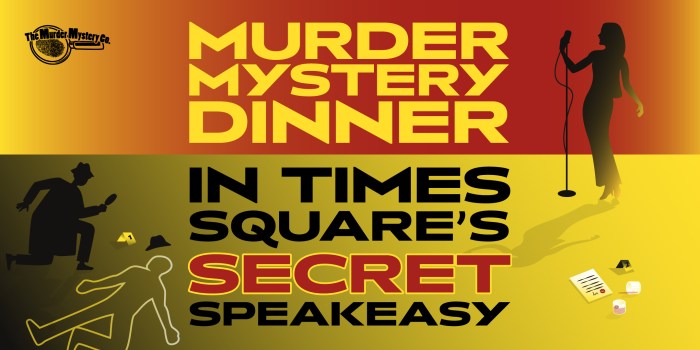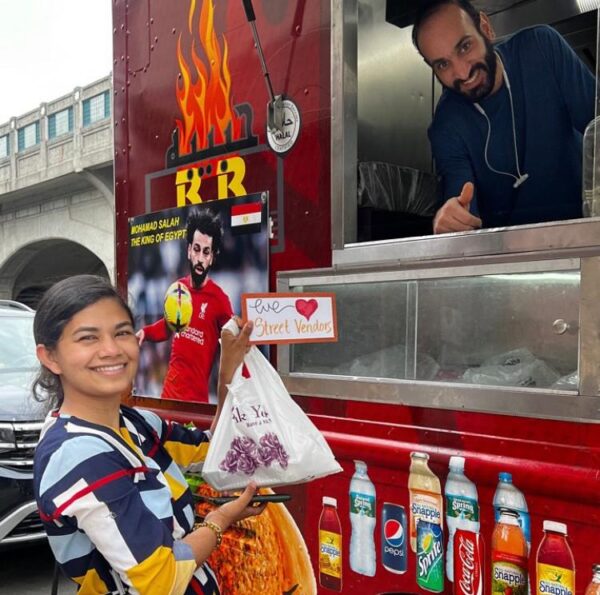Since Mayada Anjari immigrated to the United States as a refugee from Homs, Syria, in 2016, she’s helped support her family by cooking sold-out community dinners at the Rutgers Presbyterian Church on the Upper West Side and other religious centers throughout the city. Now, she is bringing Syrian cuisine to American kitchens with the publication of a new cookbook, “The Bread and Salt Between Us” (out Friday).
“At first I wasn’t sure about making a cookbook,” Anjari, 32, who speaks Arabic, said over email via a translator. “But the more I thought about it, I realized it would be good for me and my family.”
Every Saturday for six months in 2017, cookbook author Jennifer Sit and translator Dalia El-Newehy traveled to Anjari’s house in Jersey City to cook with her. After a cup of coffee, the three would walk to the local C-Town to buy groceries. Then, they would return to the kitchen to cook before sitting down in the evening and eating the fruits of the day’s labor.
While Anjari cooked and El-Newehy translated, Sit converted Anjari’s actions into recipes.
The most difficult part was defining quantities, such as how high the stovetop flame should be or how long something should cook, Sit said.
“One of the biggest things is that Mayada doesn’t really measure — she’s really good at eyeballing,” Sit, 32, said. “I would know that the ‘Teenage Mutant Ninja Turtles’ coffee cup she would use would equal one and a quarter cups.”
As Sit got to know Anjari and her four children, she compiled anecdotes to include in the book. The recipe for cheese fingers, for example, explains that the treats are a foolproof way for Anjari to soothe her two-year-old daughter, Jana, when she gets upset. Sit also fondly remembers tasting food for Anjari, who could not eat in the daytime during Ramadan, the month of fasting in Islam.
Everyone involved in the project, from the proofreader to the copy editor to the publicist, worked on a volunteer basis, Sit said. All proceeds will go to Anjari and the Rutgers Presbyterian Church’s New Americans Committee, which helps refugees, asylum-seekers and others find employment.
Formerly the Refugee Task Force, the committee sponsored Anjari’s family through the Church World Service when they came to the U.S. When the group realized Anjari’s cooking skill, they started hosting the dinners as a way for Anjari to make money — and more.
“It’s been a way to raise awareness about the plight of the refugee,” said Nancy Muirhead, a nonprofit lawyer who’s the chair of the New Americans Committee. “Breaking bread and speaking together about these issues is a great way to build understanding.”
With the publication, Anjari is excited to bring her cooking to a larger audience.
“I hope many Americans will try my different recipes so that they can experience Syrian dishes,” she said.
With Meredith Deliso
A dinner party staple
If Anjari was pressed to pick, the kibbeh — a popular Levantine specialty — might be her favorite recipe included in “The Bread and Salt Between Us.” Hers stands out for the use of chicken, instead of beef or lamb, for the dough. The labor-intensive dish makes for an ideal group activity, and is perfect for serving at a dinner party alongside tabbouleh.
Serves 8-10
Dough
- 1 lb. fine bulgur (about 2 3⁄4 cups)
- 1⁄2 lb. skinless, boneless chicken breast, cut into 2-inch pieces
- 1⁄4 onion, sliced
- 2 tsp. salt
- 1⁄4 tsp. cayenne pepper
Stuffing
- 2 tbsp. olive oil
- 1⁄2 small onion, coarsely grated
- Salt and black pepper
- 1 lb. ground beef (80-percent lean)
- Vegetable oil, for frying
1. Make the dough: Place the bulgur in a large pot or bowl. Add enough hot water to cover. Stir together and let stand for 1 hour, until soft. If the bulgur feels dry, add more hot water and mix until soft; if all the water has not been absorbed, drain off the excess. The bulgur should stick together when pressed into a ball.
2. Add the chicken and onion to the bulgur. Process through a meat grinder with a fine plate two or three times, until very smooth. (You can also use a food processor: Start by chopping the onion. Then, working in batches, add the chicken and bulgur and pulse several times. Stir the mixture and pulse again several times, until a sticky dough begins to form. Do not try to pulse the dough completely smooth in the food processor; it will come out too sticky.)
3. Transfer the mixture to a large bowl. Add the salt and cayenne and mix together with your hand, kneading it until thoroughly combined. Cover the bowl and refrigerate.
4. Make the filling: Heat the olive oil in a large skillet on medium. Add the onion and season with salt and pepper. Cook for 2 to 3 minutes, until softened and translucent. Add the beef and cook for 8 to 10 minutes, until browned and cooked through; frequently stir the beef and break it up with a wooden spoon to create a fine texture. Transfer to a bowl and let cool.
5. To assemble: Fill a small bowl with water to dip your hands in while you work, to prevent sticking. Roll a 2-inch ball of dough between your hands. Use your index finger to form a hole in the center of the ball. Keeping your finger there, roll the bulgur mixture around your finger to form a 3-inch-long hollow cone with very thin sides. (Try not to break the sides.) Wet your hands with water if the dough is sticky.
6. Use a spoon to fill the cone with the beef filling, leaving about 1⁄4 inch from the top of the cone. Pinch and roll the top of the cone closed. With wet hands, turn and shape the kibbeh between your hands to create a torpedo or a football shape, with pointed ends. Transfer to a platter and repeat with the remaining dough and filling.
7. Line a large plate with paper towels. Heat 3 inches of vegetable oil in a large pot on medium-high until hot. Working in batches, add the kibbeh and fry for 12 to 14 minutes, flipping halfway through, until dark brown. Transfer with a slotted spoon to the paper towel–lined plate to drain. Let cool slightly and serve.
IF YOU GO
Mayada Anjari will sign copies of “The Bread and Salt Between Us” at Rutgers Presbyterian Church on Sept. 9 from 1:30-3 p.m. | 236 W. 73rd St. | FREE admission, RSVP at eventbrite.com


































